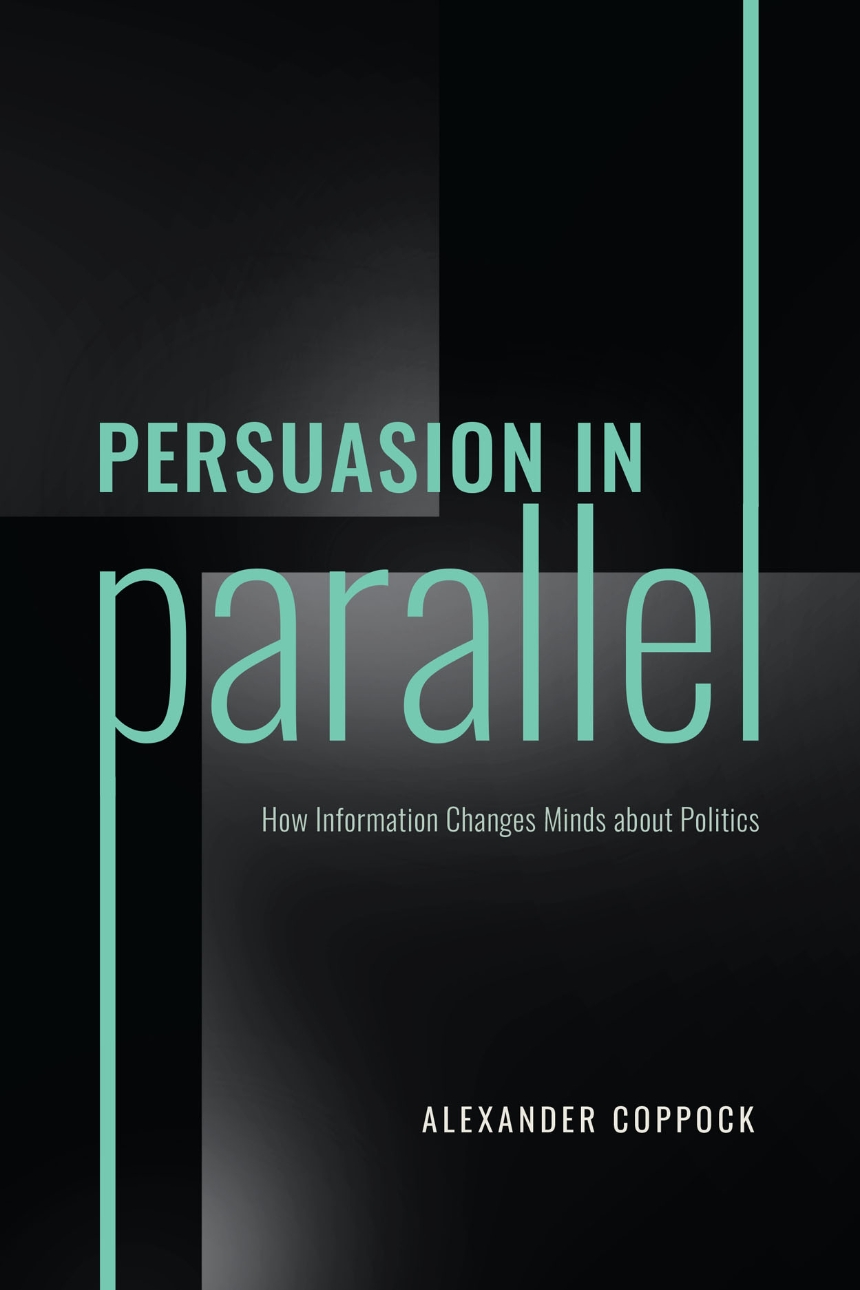Persuasion in Parallel
How Information Changes Minds about Politics
9780226821849
9780226821825
9780226821832
Persuasion in Parallel
How Information Changes Minds about Politics
A bold re-examination of how political attitudes change in response to information.
Many mistakenly believe that it is fruitless to try to persuade those who disagree with them about politics. However, Persuasion in Parallel shows that individuals do, in fact, change their minds in response to information, with partisans on either side of the political aisle updating their views roughly in parallel. This book challenges the dominant view that persuasive information can often backfire because people are supposedly motivated to reason against information they dislike. Drawing on evidence from a series of randomized controlled trials, the book shows that the backfire response is rare to nonexistent. Instead, it shows that most everyone updates in the direction of information, at least a little bit. The political upshot of this work is that the other side is not lost. Even messages we don't like can move us in the right direction.
Many mistakenly believe that it is fruitless to try to persuade those who disagree with them about politics. However, Persuasion in Parallel shows that individuals do, in fact, change their minds in response to information, with partisans on either side of the political aisle updating their views roughly in parallel. This book challenges the dominant view that persuasive information can often backfire because people are supposedly motivated to reason against information they dislike. Drawing on evidence from a series of randomized controlled trials, the book shows that the backfire response is rare to nonexistent. Instead, it shows that most everyone updates in the direction of information, at least a little bit. The political upshot of this work is that the other side is not lost. Even messages we don't like can move us in the right direction.
216 pages | 15 halftones, 42 line drawings, 20 tables | 6 x 9 | © 2022
Chicago Studies in American Politics
Political Science: American Government and Politics, Political Behavior and Public Opinion
Reviews
Table of Contents
Chapter 1 Persuasion in Polarized America
Chapter 2 Reinterpreting a Social Psychology Classic
Chapter 3 Definitions and Distinctions
Chapter 4 Research Design
Chapter 5 Persuasion Experiments: Originals, Replications, and Reanalyses
Chapter 6 Persistence and Decay
Chapter 7 Models of Information Processing
Chapter 8 Persuasion Is Possible
Acknowledgments
Appendix
Notes
References
Index
Chapter 2 Reinterpreting a Social Psychology Classic
Chapter 3 Definitions and Distinctions
Chapter 4 Research Design
Chapter 5 Persuasion Experiments: Originals, Replications, and Reanalyses
Chapter 6 Persistence and Decay
Chapter 7 Models of Information Processing
Chapter 8 Persuasion Is Possible
Acknowledgments
Appendix
Notes
References
Index
